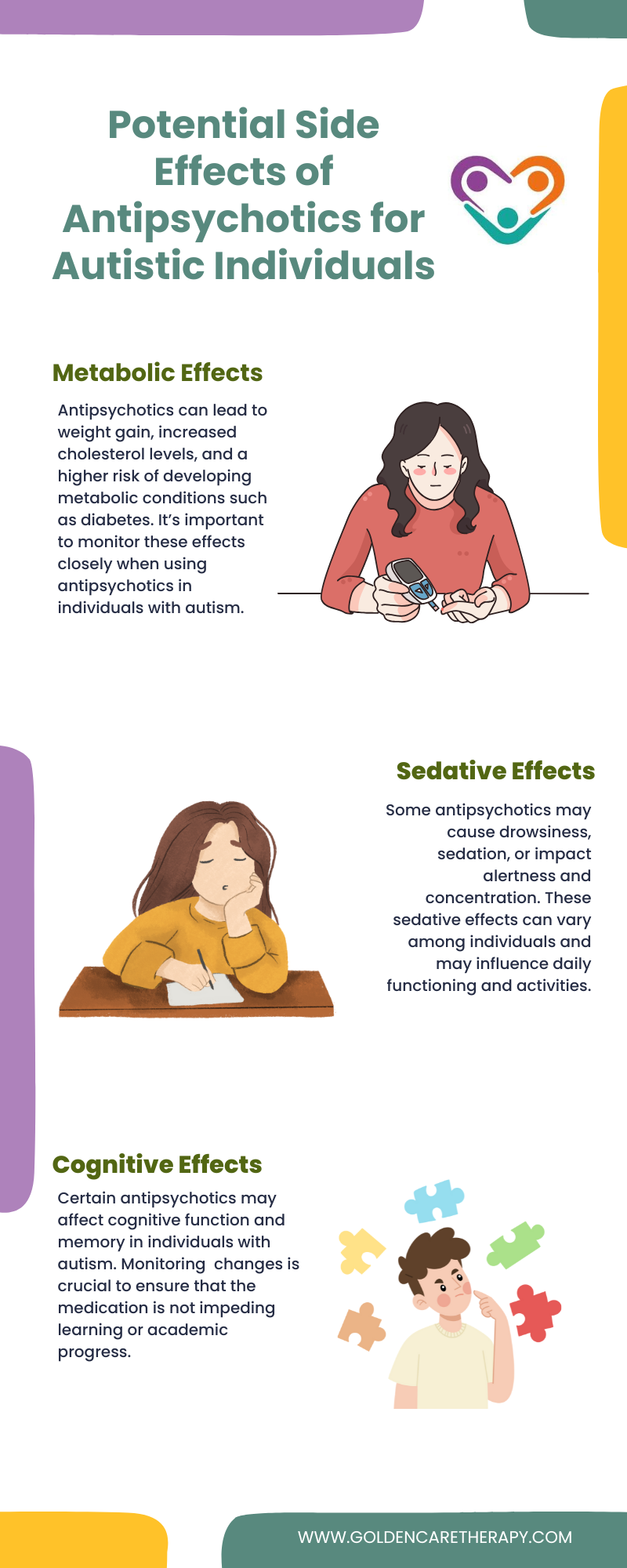Managing the challenges that come with autism can be tough, especially when behaviors become overwhelming or disruptive.
Antipsychotic medications are sometimes used to help ease certain symptoms, like aggression, irritability, or repetitive behaviors. While not the first option for every person on the spectrum, these medications can offer relief for some.
They may provide a way to manage intense emotions or behaviors that interfere with daily life, helping both individuals and their families find a bit of calm in the storm.
What are Antipsychotics?

Antipsychotics, also known as neuroleptics, are a class of medications primarily used to manage various mental health conditions, including schizophrenia, bipolar disorder, and severe depression. They work by changing the levels of neurotransmitters in the brain to regulate behavior, mood, and perception.
While antipsychotics are not approved specifically for treating core symptoms of autism, they are sometimes prescribed off-label to address certain challenging behaviors or co-occurring conditions that individuals with autism may experience.
Individuals with autism may exhibit behaviors such as aggression, self-injury, irritability, or repetitive behaviors that can significantly impact their quality of life and functioning. In some cases, antipsychotics are prescribed to help manage these challenging behaviors and improve overall social interactions and communication skills.
It’s important to note that the use of antipsychotics in autism is a complex and individualized decision that should involve thorough evaluation by healthcare professionals specializing in autism and mental health.
The benefits and potential risks of antipsychotic use in autism must be carefully weighed to ensure the well-being and safety of the individual.
The Role of Antipsychotics in Autism
Antipsychotics play a significant role in the management of autism by addressing specific symptoms and behaviors that individuals with autism may experience. Understanding why antipsychotics are used in autism and their efficacy and effectiveness is crucial for caregivers and individuals involved in the autism community.
As mentioned earlier, autistic individuals with autism may exhibit challenging behaviors that can significantly impact their quality of life and that of their caregivers.
Antipsychotics are prescribed in autism to help manage these behaviors and improve overall functioning. By targeting symptoms like irritability, hyperactivity, and repetitive behaviors, antipsychotics aim to enhance the individual’s ability to engage in daily activities and social interactions.Antipsychotics are also utilized in autism to address co-occurring conditions like anxiety, depression, or sleep disturbances that often coexist with autism. By alleviating these secondary symptoms, antipsychotics can enhance the individual’s well-being and overall quality of life.
That said, the efficacy of antipsychotics in autism varies depending on the individual and the specific symptoms being targeted. While antipsychotics have shown positive outcomes in managing aggression, irritability, and repetitive behaviors in some individuals with autism, their effectiveness can differ from person to person.
It’s essential for caregivers and healthcare providers to closely monitor the individual’s response to antipsychotic treatment, considering both the benefits and potential side effects.
Regular assessments can help determine the effectiveness of the medication and make necessary adjustments to optimize treatment outcomes. By weighing the benefits and risks of antipsychotic use in autism, healthcare providers can tailor treatment plans to suit the individual’s specific needs and improve their overall quality of life.
Considerations for Antipsychotic Use
To properly use antipsychotics for managing autism, it’s essential to carefully consider the benefits versus the risks associated with their use, as well as the potential side effects that may arise.
Antipsychotics may help manage challenging behaviors associated with autism, such as aggression, self-injury, or severe irritability. They can aid in improving the overall quality of life for individuals with autism and their families by reducing disruptive symptoms.
Despite potential benefits, there are risks associated with antipsychotic use in individuals with autism. These risks include metabolic side effects like weight gain, diabetes risk, and cardiovascular issues.
Additionally, antipsychotics may have sedative effects and impact cognitive function in some cases. They can also have potential side effects such as:

It’s important to weigh the benefits of antipsychotics against the risks so that caregivers and healthcare providers can make informed decisions regarding treatment strategies. Close monitoring, regular evaluations, and open communication with healthcare professionals are essential in ensuring the safe and effective utilization of antipsychotics as part of an individualized treatment plan for autism.
Treatment Guidelines and Monitoring

Medical supervision is important when considering the use of antipsychotic medications in individuals with autism. It is imperative that a healthcare professional, such as a psychiatrist or pediatrician familiar with autism, is involved in the decision-making process.
The initial assessment should include a thorough evaluation of the individual’s symptoms, medical history, and any potential contraindications before initiating antipsychotic treatment.
Throughout the treatment period, regular check-ins with the healthcare provider are crucial to monitor the individual’s response to the medication and assess any side effects or changes in symptoms.
Adjustments to the treatment plan may be necessary based on the person’s progress and tolerance to the medication. Open communication between the caregiver and the healthcare provider is key to ensuring that the treatment remains safe and effective.
As with any medication, the use of antipsychotics in autism may require adjustments to dosage or even a change in medication based on individual responses. Monitoring for efficacy and side effects is an ongoing process that should be conducted collaboratively between the healthcare provider, the individual, and their caregiver.
Regular follow-up appointments should be scheduled to evaluate the effectiveness of the antipsychotic treatment and to address any emerging concerns or challenges. Monitoring should not only focus on the primary symptoms being targeted but also on the individual’s overall well-being, including physical health, behavior, and emotional state.
Conclusion
In the end, antipsychotics can play a helpful role in managing certain challenges for individuals with autism, but they’re just one piece of the puzzle. With the right guidance from healthcare professionals, these medications can improve quality of life when used carefully alongside therapies and support.
Remember, every person with autism is unique, so finding the best approach is all about understanding their individual needs. With a variety of ABA programs in NJ, Indiana, Georgia, and New York, families have access to specialized support to meet those individual needs. To learn more about how ABA therapy can help your child thrive, contact us at Golden Care Therapy today for personalized guidance and assistance.
Sources:
https://www.ncbi.nlm.nih.gov/pmc/articles/PMC2171144
https://hqlo.biomedcentral.com/articles/10.1186/s12955-021-01669-0



